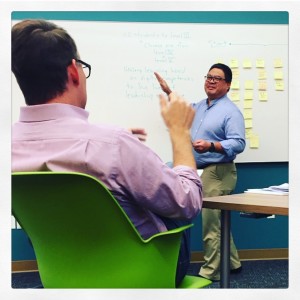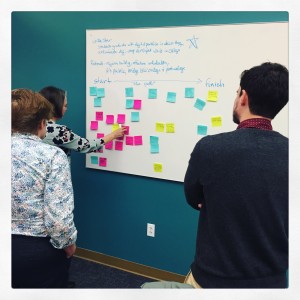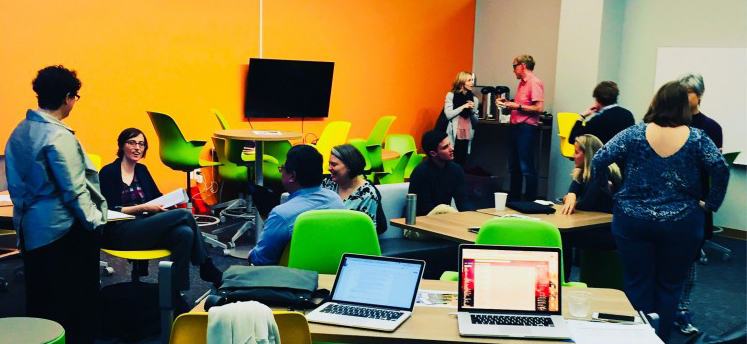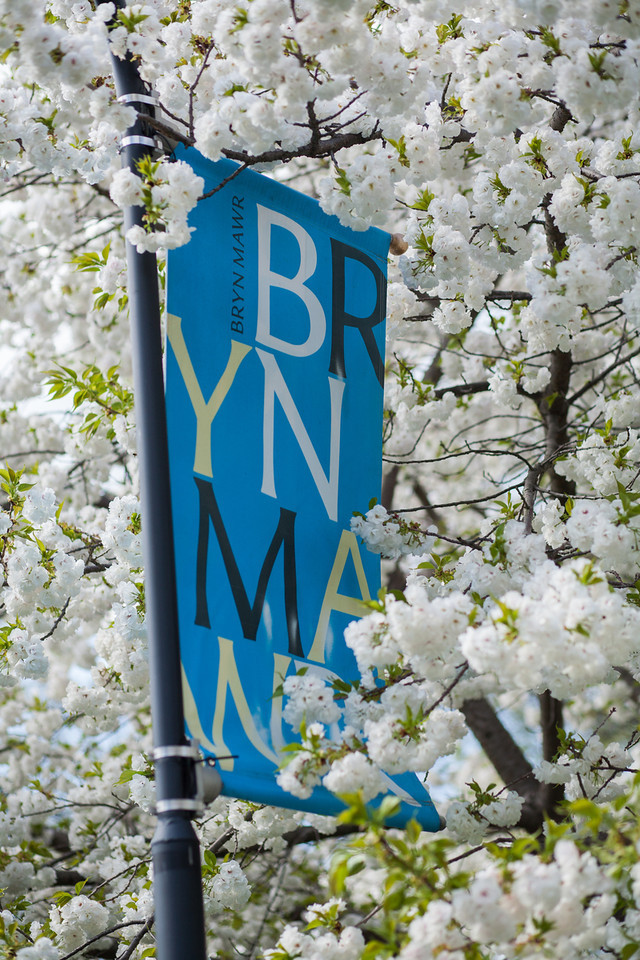 • See reflection and photos from Think Tank co-lead G. Siesing, Bryn Mawr College.
• See reflection and photos from Think Tank co-lead G. Siesing, Bryn Mawr College.
• Join two follow up webinars from the BMC & Davidson teams via EDU-PLACE in January.
At this think tank event hosted by Davidson College, a mix of faculty, campus leaders, librarians, technologists, and instructional designers from liberal arts colleges across the country focused first on the Bryn Mawr College Digital Competencies Program (https://www.brynmawr.edu/digitalcompetencies), tracing its history, motivations, and impacts for students, faculty, and the institution.
It was a great event – interesting and fun. I was surprised how much we accomplished in a short period of time. Thanks to all!
__________________– Janet Scannell, Chief Technology Officer, Carleton College
Next, the Davidson team facilitated a design thinking session for some rapid prototyping to explore related interest across our institutions, many of whom are exploring and building similar kinds of programs and looking for frameworks to share and adapt.

The concepts of digital competencies and digital fluency reflect the need for students to develop digital skills and critical perspectives as lifelong learners prepared for work and life in the 21st century. There is growing recognition of the importance of integrating these skills into a well-rounded liberal arts education. Recently, Bryn Mawr College has developed a digital competencies framework focused on these five areas:
- Digital Survival Skills
- Digital Communication
- Data Management and Preservation
- Data Analysis and Presentation
- Critical Design, Making, and Development
 The main outcomes from this workshop will be to create a community of practice around design, development, and facilitation of digital competency/dexterity/fluency programs in the liberal arts and to identify ongoing ways of sharing program models and resources. Individual institutional teams will also be able to adapt and expand Bryn Mawr’s digital competencies framework as appropriate for local contexts. We hope that LACOL and other LAC partners might also at some point build on the BMC digital competencies framework as an expression of foundational capabilities that we agree on across liberal art institutions as relevant for scholarship, learning, work, and life in the digital age. A shared framework can provide a pathway to accelerate stated LACOL goals for creative collaboration in digital experimentation, faculty development, and research.
The main outcomes from this workshop will be to create a community of practice around design, development, and facilitation of digital competency/dexterity/fluency programs in the liberal arts and to identify ongoing ways of sharing program models and resources. Individual institutional teams will also be able to adapt and expand Bryn Mawr’s digital competencies framework as appropriate for local contexts. We hope that LACOL and other LAC partners might also at some point build on the BMC digital competencies framework as an expression of foundational capabilities that we agree on across liberal art institutions as relevant for scholarship, learning, work, and life in the digital age. A shared framework can provide a pathway to accelerate stated LACOL goals for creative collaboration in digital experimentation, faculty development, and research.
Follow up events and webinars are planned. Faculty, instructional designers, leadership, career development center directors, and others engaged in thinking through digital competency frameworks for the liberal arts are encouraged to join the conversation. Watch this space! Read More

 When Bryn Mawr College first proposed experimenting with “blended learning in the liberal arts” back in 2011, we conceptualized it as a combination of “traditional,” face-to-face, liberal arts instruction and online tutorials that assessed and gave students feedback on learning. However, in the initial calls for proposals, it became quickly apparent that liberal arts college faculty were incorporating other types of digital technologies into their teaching, and doing so ways we had not anticipated. This presentation surveys the digitally enabled teaching approaches that have been included under the “blended learning” umbrella since 2011 and identifies “digital pedagogies” that might connect them.
When Bryn Mawr College first proposed experimenting with “blended learning in the liberal arts” back in 2011, we conceptualized it as a combination of “traditional,” face-to-face, liberal arts instruction and online tutorials that assessed and gave students feedback on learning. However, in the initial calls for proposals, it became quickly apparent that liberal arts college faculty were incorporating other types of digital technologies into their teaching, and doing so ways we had not anticipated. This presentation surveys the digitally enabled teaching approaches that have been included under the “blended learning” umbrella since 2011 and identifies “digital pedagogies” that might connect them.

 The mission of Bryn Mawr College
The mission of Bryn Mawr College


